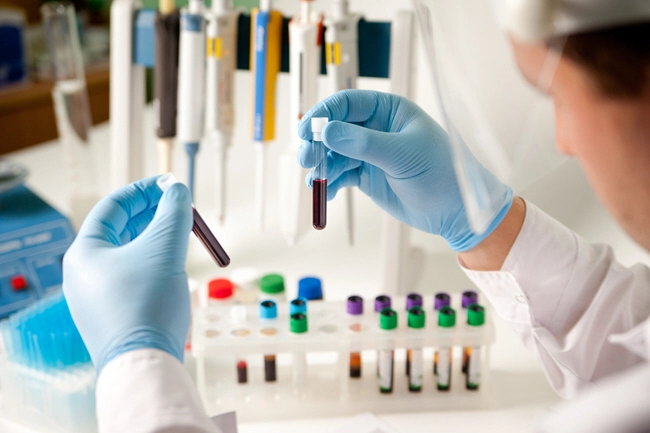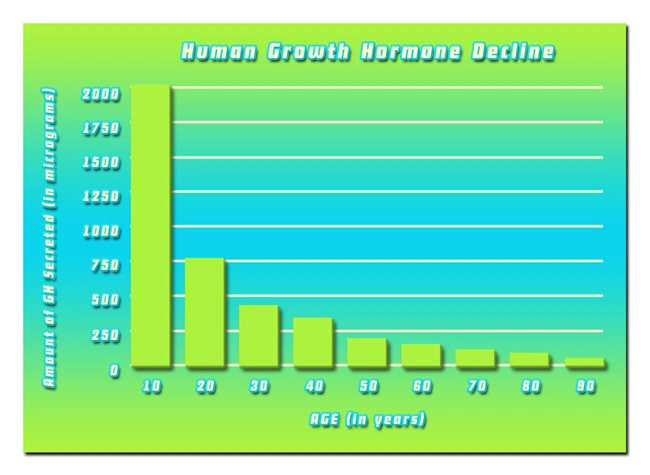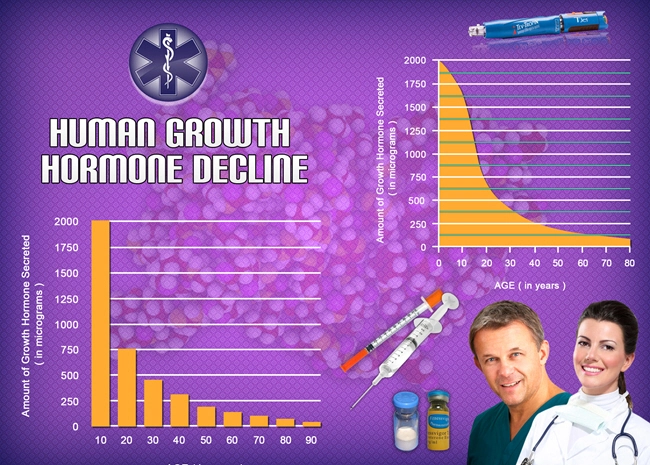
Video Link: https://vimeo.com/286239335
Video Download: Click Here To Download Video
Video Stream: Click Here To Stream Video
The Importance of Hormonal Balance for Menopause
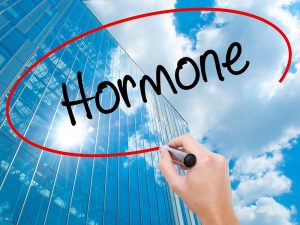 More than one researcher has described the human body’s hormonal balance as “the dance of life” or, more specifically, “the dance of the hormones.”
More than one researcher has described the human body’s hormonal balance as “the dance of life” or, more specifically, “the dance of the hormones.”
And this is indeed an apt analogy.
Your endocrine system is a delicate balance that is interrelated. When one hormone increases or decreases, it often has a spillover effect on one or more other hormones.
And This is Especially True Concerning Menopause
The dictionary definition of menopause is “the time of cessation of a woman’s reproductive ability.” Female ovaries slow down and eventually cease the production of hormones once a woman ages.
The condition usually appears between the age range of 35 to 55. Menopause is somewhat unique in the sense that women can suffer from its symptoms for up to a decade before being diagnosed with full-fledged menopause. This is known as perimenopause.
Most people believe that the leading cause of menopause is a woman’s lowered levels of estrogen and progesterone.
According to this theory, these two hormones are the direct cause of the broad range of unpleasant symptoms (osteoporosis, hot flashes, mood swings, insomnia, etc.) that combine to make a woman's life miserable.
But this theory, true as it may be, is not the complete explanation of what happens in a woman's body during menopause. There are other hormones involved in the equation: testosterone, DHEA (Dehydroepiandrosterone), Follicle-stimulating hormone (FSH), luteinizing hormone (LH) and pregnenolone all are a part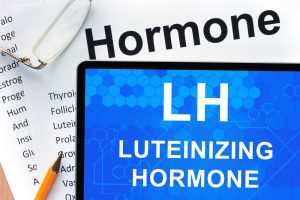 of the puzzle.
of the puzzle.
Still another aspect of menopause is this: symptoms vary widely among individual women; some are hit much harder by the condition than others. This is also true of the broad range of responses to hormone replacement therapy.
Genetics, environment, ability to control stress, and nutrition -- all of these factors must be taken into consideration when dealing with menopause.
With that brief introduction out of the way, let’s take an in-depth look at the condition of menopause, compare synthetic vs. natural estrogens, the most efficient and safest of treatment therapies, and let you know what our clinic can do for you to make this transition as smooth and comfortable as possible.
Why You Need Estrogen
Estrogen is crucial to your continued good health. Consider this: estrogen plays a vital role in several hundred purposes in a woman's body. Here are a few of them:
- Keeps your metabolism active to help you stay trim.
- Increases HDL-cholesterol (the “good” cholesterol) and decreases LDL-cholesterol (the “bad” cholesterol).
- Lowers your blood pressure.
- Battles osteoporosis (bone disease and weakening).
- Keeps your blood flowing smoothly.
- Helps your brain in so many ways: stimulates the manufacture of choline acetyltransferase, which shows promise in slowing Alzheimer’s disease; sharpens memory, and eases depression and mood swings.
- Helps your skin stay supple and youthful-looking.
- Protects from heart disease.
This list could go on and on, but hopefully, you get the point. Estrogen is vital in so many ways.
But here is an example of hormonal balance/unbalance: you can have too much of a hormone. A surplus of estrogen can produce many of the same problems as a lack of estrogen...at times, even more, problems.
Excess estrogen can occur as a result of incorrect, inexact, not medically-supervised hormone replacement therapy, as well as environmental factors. Estrogen-producing chemicals are burrowed into plastic and many other everyday household items.
Also, being a “couch-potato” by not getting any exercise and a junk-food-laden diet can knock your estrogen levels out of the ballpark -- one way or the other.
Regardless of its cause, estrogen balance and metabolism play critical roles in the treatment of menopause.
The Cause of Menopause
Researchers agree that menopause begins with the reduction in oocytes (a cell in an ovary that may divide to form an ovum, which is a female reproductive 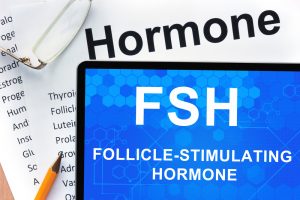 cell).
cell).
This increases circulating follicle-stimulating hormone (FSH) and luteinizing hormone (LH). This is due to the smaller amount of follicles and oocytes that produce estrogen as a response to these hormones.
This process has a broad range of effects. There may be an increase in estrogen levels as a response to higher FSH levels.
There is another hormone that comes into this equation: inhibin. Inhibin is a hormone that inhibits the production of FSH by the pituitary gland.
In the years before menopause, the levels of inhibin fall as the levels of FSH rise. This is crucial in understanding menopause for this reason: as the levels of inhibin diminish, this also lowers the number of follicles available for future production by the ovary.
When the level of follicles drops below the level required for ovulation, no more ovulation. This results in a dramatic decline in the production of estradiol and progesterone by the ovaries, and the beginning of the effects of menopause.
There are other hormones in a woman’s body that decline with age: dehydroepiandrosterone (DHEA), androstenedione, growth hormone and levels of both total and free testosterone.
Estrogen Metabolism
There are three different pathways estrogen travels through as it metabolizes -- two significant trails and one minor one. The two significant channels are called the 2-OH estrone metabolite and the 16-OH estrone metabolite. The small pathway is named the 4-OH estrone metabolite.
The 2-OH estrone metabolite is the safest pathway for estrogen metabolization. This is because it can block the powerful carcinogenic estrogen products, causes minimal DNA damage, and slows cell growth. This slashes the risk of breast cancer, so in a perfect world, this is the desired pathway for metabolized 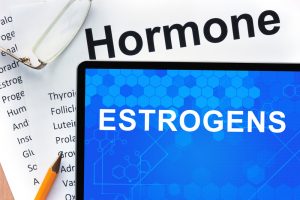 estrogen.
estrogen.
In contrast, the other two pathways, 16-OH estrone metabolite and 4-OH estrone metabolite raise a woman’s risk of breast cancer and induce far more DNA mutations and damage.
The good news? You can strengthen your 2-OH estrone metabolite pathway.
A combination of the right fitness routine and smart nutrition with the emphasis on cruciferous vegetables such as kale, broccoli, cauliflower and Brussel sprouts, and high-quality protein will get things going in the right direction.
Also, don’t forget supplements. Omega-3 supplements (fish oil and krill oil), Indole-3-carbinol, and Diindolylmethane (DIM) all help to guide estrogen down the 2-OH highway.
Also, if you are undergoing estrogen hormone replacement therapy, the treatment may eat up your level of B vitamins. So be sure to supplement with a vitamin B complex that includes vitamins B-6, B-12, and folate.
Another supplement that can ease the adverse side effects of menopause is fennel. This herb has been shown to reduce the symptoms of menopause: hot flashes, insomnia, bladder issues, and joint pain.
Synthetic or Natural Bio-Identical Hormone Replacement?
If you have decided that the discomfort and painful effects of menopause are reducing the quality of your life, your next step is hormone replacement therapy (HRT).
At this point, there are two options to consider: Bio-Identical HRT or Synthetic HRT. Bio-identical hormones are manufactured from plants to match your body’s chemical structure exactly. If done correctly your body will not know the difference between your replacement hormones and the natural hormones in your body that are being replaced.
Synthetic hormones are not identical or natural. In fact, one of the more common synthetic hormones, Premarin, comes from the urine of pregnant mares (horses).
 To keep it simple, always remember that molecular configuration is critical in how hormones bind to receptors.
To keep it simple, always remember that molecular configuration is critical in how hormones bind to receptors.
A synthetic molecule from a horse will obviously differ in molecular configuration from a hormone produced in the human body.
This crucial difference may account for many of the adverse side effects reported by women who are treated with Premarin: elevated risk of heart attack, breast cancer, and stroke; cataracts; digestive distress; loss of scalp hair; a headache, weight gain, swollen breasts, and fatigue are frequently reported.
These nasty side effects are a direct result of the body having trouble accepting a synthetic molecule, similar to trying to “fit a round peg into a square hole.”
Bio-identical hormones are more effective in “directing traffic” of estrogen metabolites into the 2-OH estrone pathway and produce fewer adverse side effects.
Another advantage of natural bio-identical hormones is that each dose is individually and uniquely made for you...and only you, based on your biology and your specific needs. This is rarely if ever, done with synthetic hormones. The large pharmaceutical companies (“Big Pharma”) offer a one-size-fits-all type of treatment.
So why aren’t more women opting for Bio-identical HRT? They might not be aware of it since the major drug companies prefer the synthetic approach. Why? Because synthetic hormones can be patented and are thus a continuing cash-cow.
The delivery method is also essential. Oral hormones are not a good choice since they must be metabolized by the liver. This makes the liver work harder and diminishes the effectiveness of the hormone. Also, there are reports of elevated liver enzymes from users of oral hormones, and that is something no one needs.
There are other problems with oral estrogen: increased triglycerides (this may contribute to an elevated risk of cardiovascular disease), a drop of growth hormone, elevated blood pressure, higher possibility of developing gallstones, lower testosterone levels (women need testosterone as well as men, just in smaller amounts), and cravings for simple carbohydrates.
A better method of delivery is transdermally (delivered through the skin). This method is safer since it bypasses the internal organs. It is also more efficient since it gets to work in the blood stream immediately.
Finally, the dosage amount of replacement hormones must be precise. Too much of a hormone can be as bad as too little.
Often, HRT providers overshoot and load up the patient with amounts of estrogen several times beyond healthy women. At our clinic, we are aware of this and will closely monitor your hormone levels throughout the entire treatment program.
What Our Clinic Can Do For You -- and Why You Need Us
Hormone replacement is a worthy undertaking. But it must be done precisely.
HRT can also be extremely complicated and confusing. Once you begin to look  into HRT, you will be dazzled by a broad range of options: pills, patches, gels, injections, drops, synthetic, Bio-identical, etc.
into HRT, you will be dazzled by a broad range of options: pills, patches, gels, injections, drops, synthetic, Bio-identical, etc.
This is why you need our clinic. Our trained staff of medical professionals will explain your options in detail, and make sure you understand each and every aspect of the procedure.
Remember, your hormonal system is in a finely-tuned balance.
Therefore, during your HRT treatment, we will monitor every other hormone in your body that could be affected by your hormone replacement program.
As mentioned earlier, HRT must be undertaken with strict protocol and monitoring. Our goal is to provide you with the best HRT treatment possible. To do that, we cover all bases with one goal in mind: ease your menopausal transition.
Contact us to discuss a tailor-made, individualized program that is designed specifically for you.
References
Is Hormone Balance Important for Menopausal Women?
https://www.shecares.com/hormones/articles/hormone-balance
Menopause & Balance A Balanced Approach to Menopause
Why is Hormone Balance in Women so Important?
Contact Us Today For A Free Consultation
Dear Patient,
Once you have completing the above contact form, for security purposes and confirmation, please confirm your information by calling us.
Please call now: 1-800-380-5339.
Welcoming You To Our Clinic, Professor Tom Henderson.

- Are You Constantly Feeling Tired And Fatigued ? [Last Updated On: May 21st, 2024] [Originally Added On: May 1st, 2018]
- Constantly Tired? Can't Sleep? [Last Updated On: March 14th, 2025] [Originally Added On: March 23rd, 2019]
- How to Understand and Deal with Cirrhosis [Last Updated On: March 13th, 2025] [Originally Added On: April 12th, 2019]
- Insomnia: The Silent Killer [Last Updated On: March 12th, 2025] [Originally Added On: April 30th, 2019]
- Lipocine Reintroduces Tlando [Last Updated On: July 18th, 2024] [Originally Added On: March 18th, 2020]
- High-Intensity Interval Training Boosts Both Body and Mind [Last Updated On: February 20th, 2025] [Originally Added On: May 10th, 2020]
- Tattoo Safety: What to Know Before You Get a Tattoo [Last Updated On: February 28th, 2025] [Originally Added On: June 2nd, 2020]
- Testosterone and Fatherhood [Last Updated On: May 20th, 2024] [Originally Added On: October 12th, 2020]
- L-Arginine: The Key to Both Heart Health and Sexual Health [Last Updated On: March 10th, 2025] [Originally Added On: December 4th, 2020]
- Menopause Drugs: Study Stokes New Debate Over Cancer Risks [Last Updated On: March 8th, 2025] [Originally Added On: December 16th, 2020]
- Study Examines Link Between Growth Hormones and Osteoporosis [Last Updated On: March 11th, 2025] [Originally Added On: December 17th, 2020]
- Everything You Need to Know About Clomiphene [Last Updated On: March 9th, 2025] [Originally Added On: December 20th, 2020]
- Fast Facts About DHEA: What You Need to Know About This Natural Steroid [Last Updated On: July 15th, 2024] [Originally Added On: March 4th, 2021]
- Enjoy a Few Drinks Weekly? Beware: This May Be a Link to Low Sperm Counts and Quality [Last Updated On: March 6th, 2025] [Originally Added On: August 16th, 2021]
- Hormone Therapy May Benefit Some Women's Hearts [Last Updated On: February 20th, 2025] [Originally Added On: August 18th, 2021]
- HGH Male Blood Panel [Last Updated On: October 28th, 2021] [Originally Added On: September 28th, 2021]
- Growth Hormone Battles Osteoporosis [Last Updated On: February 26th, 2025] [Originally Added On: October 11th, 2021]
- Growth hormone = More Sleep = Better Sex! [Last Updated On: March 7th, 2025] [Originally Added On: October 11th, 2021]
- Low Testosterone and Hypogonadism: The Difference [Last Updated On: June 10th, 2024] [Originally Added On: October 12th, 2021]
- The Link Between Testosterone and Tylenol [Last Updated On: February 21st, 2025] [Originally Added On: October 12th, 2021]
- Hormone Replacement Therapy and Aerobics May Ease Menopause Symptoms [Last Updated On: February 19th, 2025] [Originally Added On: October 13th, 2021]
- Growth Hormone and Lifestyle = An Extended Lifespan [Last Updated On: February 23rd, 2025] [Originally Added On: October 13th, 2021]
- Growth Hormone, Foods, and Supplements for Healthy Skin [Last Updated On: June 1st, 2024] [Originally Added On: October 13th, 2021]
- Hormone Replacement Therapy, Menopause, and Cancer [Last Updated On: February 24th, 2025] [Originally Added On: October 13th, 2021]
- Growth Hormone, Exercise, and Osteoporosis: The Facts! [Last Updated On: February 22nd, 2025] [Originally Added On: October 13th, 2021]
- Hormone Replacement Therapy and Menopause [Last Updated On: February 25th, 2025] [Originally Added On: October 13th, 2021]
- Testosterone and Women [Last Updated On: February 18th, 2025] [Originally Added On: October 13th, 2021]
- Growth Hormone and Smoking [Last Updated On: February 19th, 2025] [Originally Added On: October 14th, 2021]
- Testosterone, Statins, and Prostate Cancer [Last Updated On: February 18th, 2025] [Originally Added On: October 19th, 2021]
- Researchers Investigate Declining Sperm Counts, Find Chemicals Rampant [Last Updated On: June 14th, 2024] [Originally Added On: June 14th, 2022]
- Understanding the Role of Hormonal Balance in Menopause [Last Updated On: February 7th, 2025] [Originally Added On: February 7th, 2025]
- Introduction: Benefits of Hormone Replacement Therapy [Last Updated On: February 8th, 2025] [Originally Added On: February 8th, 2025]
- The Influences and Benefits of High-Intensity Interval Training [Last Updated On: February 8th, 2025] [Originally Added On: February 8th, 2025]
- The Link Between Human Growth Hormone, Exercise, and Osteoporosis [Last Updated On: February 9th, 2025] [Originally Added On: February 9th, 2025]
- The Therapeutic Benefits of Human Growth Hormone [Last Updated On: February 16th, 2025] [Originally Added On: February 16th, 2025]
- Introduction: The Reality of Menopause [Last Updated On: February 18th, 2025] [Originally Added On: February 18th, 2025]
- An Introduction to the Benefits of Human Growth Hormone Replacement Therapy [Last Updated On: February 19th, 2025] [Originally Added On: February 19th, 2025]
- Introduction to Hormone Replacement Therapy [Last Updated On: February 20th, 2025] [Originally Added On: February 20th, 2025]
- Introduction: Evaluating the Safety of Hormone Replacement Therapy [Last Updated On: February 23rd, 2025] [Originally Added On: February 23rd, 2025]
- The Rise of Tattoos in America [Last Updated On: February 23rd, 2025] [Originally Added On: February 23rd, 2025]
- The Influence of Growth Hormone and Sleep on Libido [Last Updated On: February 27th, 2025] [Originally Added On: February 27th, 2025]
- Introduction: The Association Between Alcohol Consumption and Sperm Quality [Last Updated On: February 27th, 2025] [Originally Added On: February 27th, 2025]
